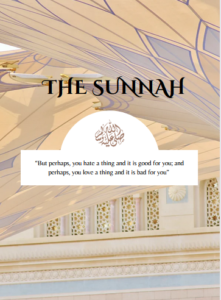Beyond Ritual: The Hidden Depths of Salah and the Profound Meaning
![]()
Let me ask you something. Have you ever watched a Muslim pray the way they move, the way they bow, the way they put their forehead to the ground and wondered? Why? Why do they pray like that? What does it mean? Is it just ritual or is there something deeper? Maybe you’ve seen it from a distance. Maybe you’ve scrolled past it online.
Maybe you’ve even stood close enough to hear the whisper of their words, but didn’t understand a single one. But what if I told you there’s a reason behind every single motion? There’s power in the silence and there’s a message in that moment, not just for Muslims, but for all of us. Because when you understand why they pray like this, you don’t just see a religion.
You see discipline, purpose, connection, unity, and healing. So sit back, open your heart, not just your ears, and don’t blink, because by the time we reach the end of this message, you might just see prayer in a way you never have before. Let’s begin.
Muslim prayer, known as Salah, is not merely a routine or ritual. It is an expression of submission that transcends speech. Every movement within the prayer holds a deeper meaning, rooted in humility and discipline.
It begins with standing in quiet stillness, hands folded, eyes lowered, heart attentive. This position is not just about posture. It is about presence.
It’s the soul acknowledging the greatness of the one who gave it life. The very act of standing straight before God symbolizes readiness, alertness and respect. It’s saying, I’m here.
I’m aware. I belong to something higher than myself. Then comes bowing.
The believer bends at the waist, placing hands on knees, back straight, eyes lowered even more. This movement is the beginning of surrender, a recognition of one’s own smallness before the Creator. It’s no longer just standing in front of God.
Now, it’s leaning into submission, acknowledging that we are not the center, that the ego must bend. The body follows the spirit, saying with every breath, you are greater than me. And then, the most powerful moment, the prostration, the forehead touches the ground, the heart lifted above the head, the place of pride, the face lowered to the lowest possible position.
In this act, the human being is no longer standing tall or halfway bent. They are completely surrendered, face in the dust, vulnerable, exposed, yet at peace. It’s a posture that strips away pride, position and power.
It’s not weakness, it’s strength, the kind that comes from knowing exactly who you are and who you belong to. In that moment, nothing else matters, not status, not wealth, not reputation, just a soul and its Creator. Rising back up from that prostration is symbolic too.
It’s as if you’re reborn from the ground up. You went down in humility, you rise up with clarity, and as the cycle of movements continues, each gesture, each word whispered is aligned with that purpose to submit, not just in body, but in spirit. It’s not random choreography.
It’s discipline in motion. It’s worship in its roist, most physical form. When you look at it closely, you realize that Muslim prayer is not just seen, it’s felt.
In the prayer lines of Muslims, something profound happens that goes beyond words. People from every background, every race, every walk of life come together and stand side by side. There’s no VIP section, no front row seats for the wealthy, no titles above heads.
The CEO could be next to the janitor, the doctor beside the taxi driver, and no one would know or care. They are all equal before God. That’s the power of this prayer.
The way Muslims pray doesn’t just reflect devotion, it reflects unity, a complete leveling of human status that the world often forgets. They stand shoulder to shoulder, feet aligned facing one direction, the Kaaba in Mecca. It’s more than just physical alignment.
It’s the spiritual synchronization, a shared purpose, a shared direction, a declaration that no matter where they come from, what language they speak or what color their skin is, they are united under one truth. In a world full of division, this moment is rare. No one is more important than the other.
No one stands above. The rich man doesn’t get a longer prayer. The poor woman doesn’t pray in silence while others are heard.
Every voice, every whisper of the verses echoes equally. There’s something else, the way they move together. Not one prays while another watches.
They bow at the same time. They prostrate at the same time. It’s harmony in motion.
It’s discipline without force, it’s obedience without oppression. That kind of unity, voluntary, intentional, and sacred, is hard to find anywhere else. And it doesn’t just happen once, it happens five times a day across countries, across continents, from skyscrapers to deserts, from palaces to prisons, the same movement, the same words, the same direction.
This unity isn’t just symbolic, it’s transformative. It breaks the illusion that we are different based on the labels the world puts on us. It teaches that greatness isn’t found in status, but in submission.
It reminds the heart that the person beside you is your brother, your sister in humanity. And when millions face the same point at the same time, doing the same act of worship, it becomes clear. This prayer was never just personal.
It was a statement to the world. We are one. When Muslims pray, they don’t go through someone else.
They don’t wait for a religious leader to speak on their behalf. They speak directly to God. It’s not a performance.
It’s not a show. It’s a conversation, raw and real. Five times a day, they pause whatever they’re doing, work, school, rest, to reconnect with the one who created them.
That connection doesn’t need an appointment. It doesn’t need fancy words. It needs sincerity.
It needs presence. No matter who you are, where you are, what you’ve done, when you stand to pray, God is listening. There’s something powerful about that kind of access.
In a world where people chase validation from others, where doors are closed unless you know the right people, here’s a door that’s always open. No secretary, no waiting list, just you and the Creator. And when you pray, you speak words that have been preserved for over a thousand years, yet somehow they speak to exactly what you’re going through right now.
Because the Quran isn’t just recited, it’s lived. And when those verses leave the lips during prayer, they cut straight to the heart. And it’s not just about speaking.
It’s about listening too. Prayer is a pause in the noise. It’s a chance to hear what’s going on inside, to hear the whispers of the soul.
Because when the forehead touches the ground, when the heart bows lower than the body, that’s when the real conversation begins. That’s when the masks fall. That’s when the questions rise.
Who am I? Why am I here? What matters most? And in that silence between the words, there’s clarity. That’s why Muslims pray like this. It’s not out of habit.
It’s out of need. Not because they have to, but because they get to. In the world that pulls people in every direction, prayer pulls them back to center.
It’s not just spiritual. It’s emotional, mental, even physical grounding. It brings stillness when life gets loud.
It brings peace when the world offers none. And every time they pray, they’re reminded. God is near.
Not distant, not unreachable, but right there. Closer than the heartbeat. Ready to hear, ready to heal.
The rhythm of Muslim prayer is tied directly to the rhythm of the day. It’s not placed randomly or squeezed into convenience. It flows with the natural movement of time.
Beginning before the sun rises, pausing at midday, returning in the late afternoon, reflecting at sunset, and finishing deep into the night. Each prayer is like a checkpoint, a breath taken before the next wave of life hits. When the world is rushing forward, prayer says pause.
When people are buried in distractions, prayer calls them back. It’s a rhythm that aligns not just with the clock, but with the soul. That first prayer, before the break of dawn, comes when the world is still silent.
It’s a time of reflection, when sleep is heavy but the spirit is light. To rise then, to wash and stand before God is not easy, and that’s the point. It disciplines the heart.
It tells the soul, you’re in charge, not your comfort. It’s the most peaceful moment of the day, a conversation with the creator before the noise begins. The second prayer hits when the sun is highest, when the world is busiest.
At the peak of the daily grind, Muslims are called to step back and remember what matters. While others chase the world, prayer reminds them of the one who controls it. Then comes the afternoon prayer, when energy dips and minds wander.
That prayer brings focus. It realigns intention. It resets the soul before fatigue takes over.
And just as the sun begins to set, the fourth prayer comes in. It captures the beauty of transition, from light to dark, from noise to calm. It’s a moment of gratitude, a chance to reflect on what the day brought.
Finally, the night prayer settles the soul. It’s the closing chapter, the final surrender, whatever happened during the day, the victories, the mistakes, the tears, the laughter is laid before God. This rhythm isn’t just ritual.
It trains the body and the mind. It teaches structure, but also surrender. In a world where people are pulled in every direction by deadlines, screens and pressures, prayer brings them back to purpose.
It creates moments of stillness within the storm, and that consistency becomes a source of peace. Before a Muslim praise, they perform a cleansing ritual called wudu, washing the hands, mouth, face, arms and feet. This isn’t just about physical cleanliness.
It’s a preparation of the soul. It’s a way of washing off the world, the stress, the distractions, the negativity, before standing in front of the creator. That act of purification is a reminder that prayer isn’t just a habit.
It’s a meeting, and when you meet someone important, you don’t come unprepared. You come clean, focused and intentional. That’s what wudu does.
It clears away the noise and makes space for sincerity. Then the prayer begins, and with every movement the heart is shaped. The words spoken aren’t just memorized lines.
They are healing verses. The body bows, the soul bends, the ego is humbled. Each time the forehead touches the ground, something heavy is lifted from the heart.
It’s not always loud or emotional on the outside, but inside something shifts. Burdens are laid down, fears are spoken in silence, regrets are surrendered. And slowly, over time, prayer becomes less about the action and more about the transformation, because the more a person prays, the more they begin to notice the difference between the person they were and the person they are becoming.
The sharp edges get smoother, the anger gets quieter, the impatience turns into peace. That’s not accidental. That’s the effect of standing five times a day in front of the one who knows you better than you know yourself.
In those moments of surrender, the heart softens. The mistakes don’t define you. They teach you.
The guilt doesn’t weigh you down. It guides you back. It’s a spiritual cleanse.
Over and over again, prayer is a reset button. No matter what the day brings, no matter how far you’ve drifted, it pulls you back. It’s God saying, I still want to hear from you.
And the more you return, the more your heart feels it. That’s how change begins. Not in one big moment, but in small, consistent steps.
Prayer chips away at the darkness inside. It doesn’t erase pain, but it puts it in perspective. It doesn’t promise a storm free life, but it gives you shelter.
And over time, the heart that was once heavy starts to feel light again. When millions of Muslims around the world pray, they all face one direction. The Kaaba in Mecca, no matter where they are on the planet, they align their bodies and their hearts toward the same point.
That simple act of facing a single direction is more than just geographical. It’s spiritual alignment. It’s unity with purpose.
It’s a reminder that life is not random, that worship has direction, that the soul is not wandering aimlessly. When you stand shoulder to shoulder in prayer and face the same point as someone halfway across the world, it becomes clear you are part of something bigger than yourself. It doesn’t matter if you’re praying in a desert, in a prison, in a palace, or in a busy city.
You’re not alone. You are standing in line with a brother in Indonesia, a sister in Nigeria, and an elder in Turkey, a child in America. One ummah, one body, one prayer, one God.
And five times a day, no matter what’s going on, whether there’s war or peace, joy or grief, this connection stays unbroken. In a world that’s always dividing, always separating, prayer brings unity without compromise. The beauty of this unity isn’t just in the direction.
It’s in the equality, rich or poor, famous or forgotten. In prayer, there’s no front row seat for the elite. Everyone stands on the same line.
No designer suit gets you closer to God. No status buys you more time. That line wipes away the labels.
It strips down the titles. It leaves only the truth. That we’re all human, all in need, all striving.
To teach us humility without humiliation, it reminds you that the person next to you may be struggling just like you, praying through pain just like you, finding peace just like you. Even the language of the prayer, Arabic, unites the heartbeats of millions who speak different tongues. It’s not a barrier.
It’s a bridge. When a Senegalese Muslim and a Japanese Muslim and a Brazilian Muslim all recite the same words at the same time in the same way, something divine happens. It’s not forced conformity.
It’s chosen unity. A rhythm that binds the soul to something timeless. And in a world full of noise, distraction, and separation, Muslim prayer becomes an anchor, constant, clear, and unshakably united.
Muslim prayer isn’t just movements. It’s not just repetition, and it’s not about rules without meaning. It’s a full-body submission, a soulful surrender, and a daily reminder of who you are and who you belong to.
Every bow, every word, every drop of water in the cleansing, it all has a purpose. It trains the heart to be humble, the mind to be focused, and the soul to stay awake in a world that keeps trying to put it to sleep. It’s connection, direct, honest, and raw.
It’s discipline, showing up five times a day. Even when life gets loud, it’s healing, turning pain into peace, chaos into clarity. And more than anything, it’s unity.
From the deserts of Africa to the cities of America, millions move together, pray together, stand equal together. No one is greater. No one is lesser.
Just servants before the one who created them all. So the next time you see a Muslim pray, you’ll know you’ll see the strength in the silence, the meaning in the movement, the purpose in the posture. And maybe, just maybe, it’ll make sense.
Thank you for taking the time to listen, to reflect, and to open your heart. May your journey be guided by truth, your soul filled with light, and your steps firm on the path of purpose. Good luck, and may peace be upon you always.



